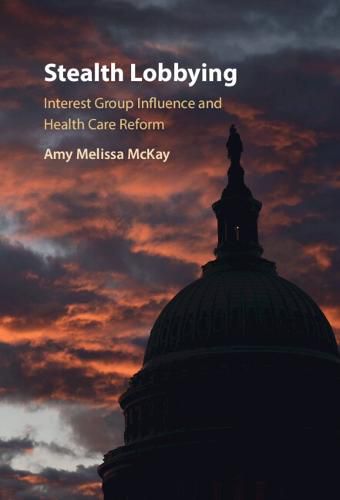Readings Newsletter
Become a Readings Member to make your shopping experience even easier.
Sign in or sign up for free!
You’re not far away from qualifying for FREE standard shipping within Australia
You’ve qualified for FREE standard shipping within Australia
The cart is loading…






Politicians and lobbyists have incentives to conceal any quid pro quo relationships between them, leaving scholars largely unable to link campaign money to legislative votes. Using behind-the-scenes information gained from novel data sources such as legislators’ schedules, fundraising events, legislative amendments, and the campaign contributions of individual lobbyists and the political action committees these lobbyists control, Amy McKay instead investigates how lobbyists influence the content of congressional legislation. The data reveal hidden relationships between lobbyists’ campaign assistance and legislators’ action on behalf of those lobbyists. Relative to constituents and even average lobbyists, the lobbyists who provide campaign money to members of Congress are more likely to secure meetings with those members, to see their requests introduced as legislation, and to achieve a larger portion of their legislative goals adopted into law. These findings raise important normative concerns about the ability of some to use money to co-opt the democratic process.
$9.00 standard shipping within Australia
FREE standard shipping within Australia for orders over $100.00
Express & International shipping calculated at checkout
Politicians and lobbyists have incentives to conceal any quid pro quo relationships between them, leaving scholars largely unable to link campaign money to legislative votes. Using behind-the-scenes information gained from novel data sources such as legislators’ schedules, fundraising events, legislative amendments, and the campaign contributions of individual lobbyists and the political action committees these lobbyists control, Amy McKay instead investigates how lobbyists influence the content of congressional legislation. The data reveal hidden relationships between lobbyists’ campaign assistance and legislators’ action on behalf of those lobbyists. Relative to constituents and even average lobbyists, the lobbyists who provide campaign money to members of Congress are more likely to secure meetings with those members, to see their requests introduced as legislation, and to achieve a larger portion of their legislative goals adopted into law. These findings raise important normative concerns about the ability of some to use money to co-opt the democratic process.